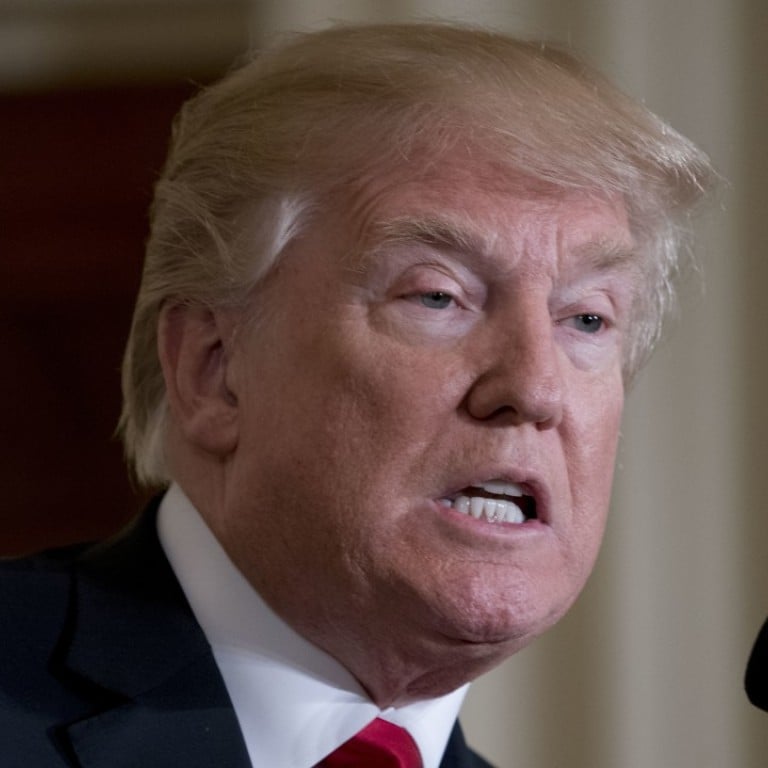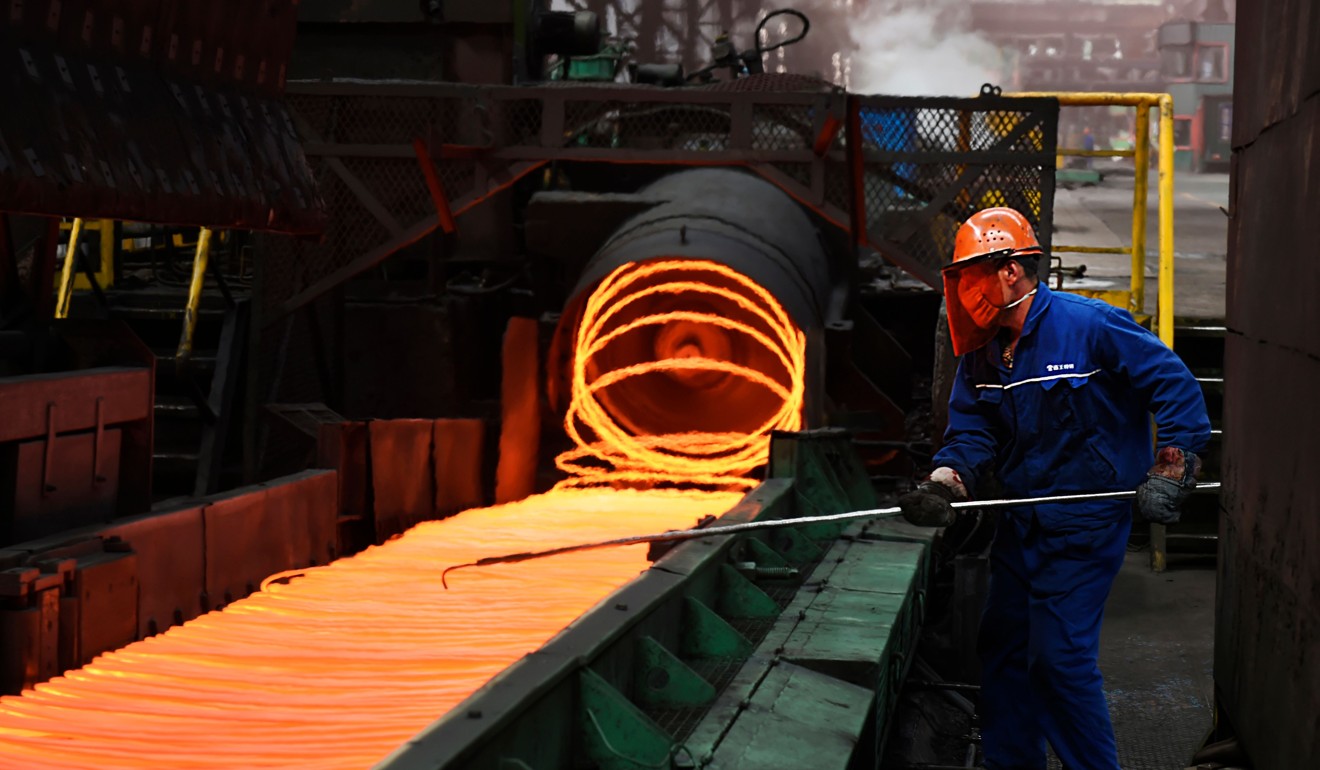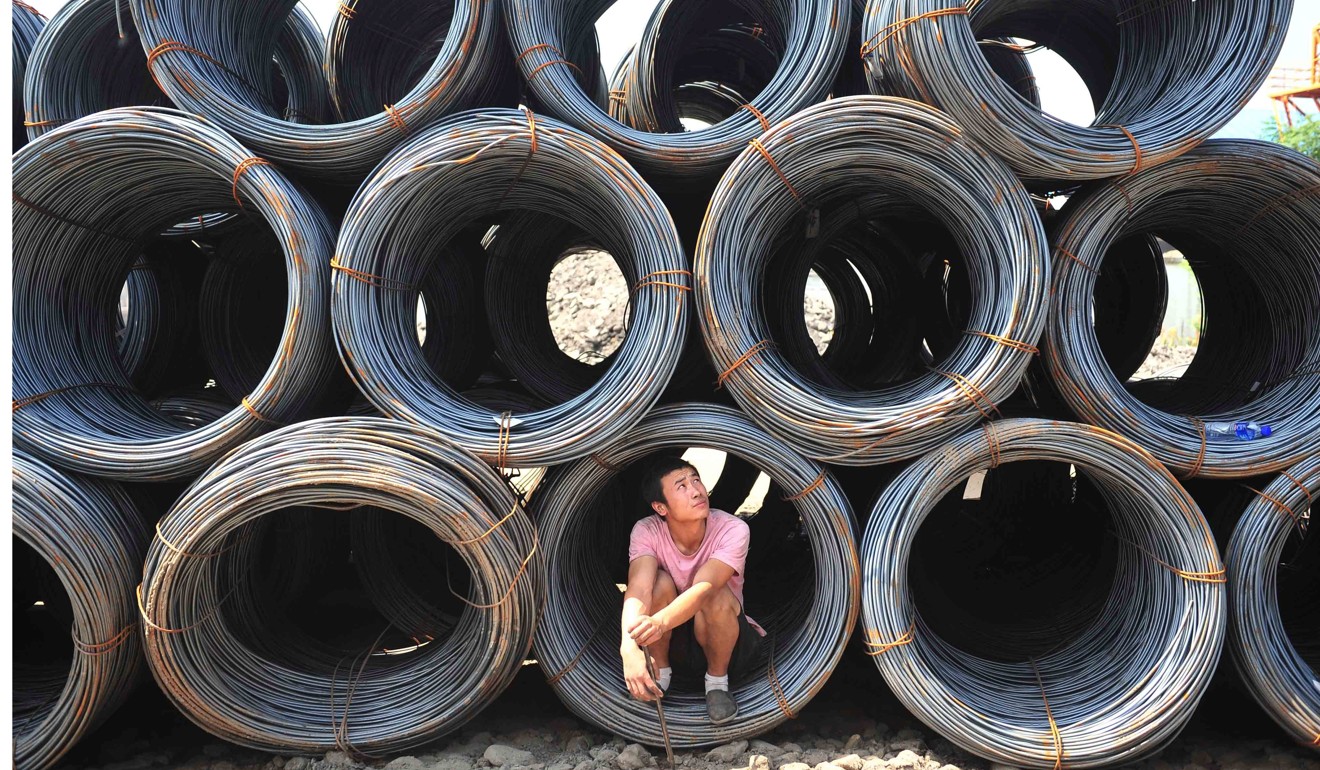
US mulling broad curbs on Chinese investment, imports, sources say, as trade war looms
Measures considered to punish China over alleged theft of intellectual property, according to sources. An announcement is likely in the coming weeks
The Trump administration is considering clamping down on Chinese investments in the US and imposing tariffs on a broad range of its imports to punish Beijing for its alleged theft of intellectual property, according to people familiar with the matter.
An announcement following an investigation by the US Trade Representative’s office into China’s intellectual property practices is expected in the coming weeks, potentially handing President Donald Trump further cause to impose trade restrictions. His announcement last week of tariffs on steel and aluminium imports has already ratcheted up global trade tensions and led to the resignation on Tuesday of his chief economic adviser Gary Cohn, who opposes such measures.
The president is now fighting trade offensives on multiple fronts, from targeting strategic rival China to angering allies like Canada and the European Union with threats to erect fresh barriers. While his counterparts have threatened retaliation, concrete action that would herald the start of an all-out trade war is yet to come.
Under the most severe scenario being weighed, the US could impose tariffs on a wide range of Chinese imports, from shoes and clothing to consumer electronics, according to two people familiar with the matter who spoke on condition of anonymity because the discussions are not public.
The Trump administration could combine the tariffs with restrictions on Chinese investments in America, which are reviewed for national security risks by Treasury’s Committee on Foreign Investment in the US, the people said. The new measures being considered by the administration could go beyond even domestic security considerations.

The US has long been wary of China’s push to develop its own semiconductor industry that could compete with American firms. That concern was highlighted in a letter made public on Tuesday, in which the Treasury Department said Singapore-based Broadcom’s hostile takeover attempt of Qualcomm could pose a national security risk.
With the probe into China, known as a Section 301 action, US officials are also considering a more targeted approach that would seek to rein in Chinese investments, the people said. The administration is looking at ways to enforce reciprocity with China on foreign investment, meaning the US would only allow takeovers in sectors that US companies can access in China, according to the people.
Treasury Secretary Steven Mnuchin has already urged closer vetting of foreign takeovers and Republican lawmakers are pushing legislation aimed at curbing China’s influence.
US officials are still examining various options, and the US Trade Representative could decide to do nothing, the people said, adding that an announcement is expected next month. A White House spokesperson declined to comment on an ongoing process, adding that no final decisions have been made.
Australian central bank Governor Philip Lowe on Wednesday slammed Trump’s tariffs proposal, warning escalation and retaliation could develop into a “very big shock for the global economy”.
Chinese officials have echoed that sentiment and Beijing has been studying curbs on US products such as soybeans. The Ministry of Commerce did not immediately respond to a fax seeking comment on the 301 investigation on Wednesday.
Trump has fanned the flames, declaring that “trade wars are good and easy to win”. Mnuchin, speaking before a congressional panel on Tuesday, said the administration’s objective was to achieve a “fair and balanced” trading relationship with China. America’s trade gap in goods with the Asian nation surged eight per cent last year to a record US$375 billion.
Mnuchin said the US was not trying to provoke a trade war with the tariffs, an action that he backed. “The good news” is that Chinese President Xi Jinping and Trump have a “very good relationship and communicate regularly”, said Mnuchin.

The US Trade Representative has argued in the past that Beijing uses a range of practices to force companies to transfer intellectual property and Chinese entities engage in widespread theft of US trade secrets. US businesses in China have long complained about being forced to hand over technology as the price of gaining access to the Asian market.
American officials are concerned China will piggyback off their nation’s technology as part of its strategy to become a leader in artificial intelligence and other advanced industries.
US companies have been urging the Trump administration to negotiate with Beijing before imposing any penalties, according to industry lobbyists. That may be difficult, given that the main channel of economic dialogue between the two countries has broken down. However, Vice-Foreign Minister Zhang Yesui said this week that China would host talks on trade issues with US officials.
Under the law, the US can impose duties or other barriers on the goods and services of the foreign country that undermined American commerce. It can also negotiate agreements under which the foreign nation would commit to end the offending tactic.
The government is supposed to come up with a solution that impacts foreign goods and services at a level equivalent to the damage done to American industry. An independent commission on US intellectual property estimated last year that the annual cost to the US economy in counterfeit goods, pirated software and theft of trade secrets from all sources exceeds US$225 billion and could be as high as US$600 billion. China is the world’s principal intellectual property infringer, the commission said.

